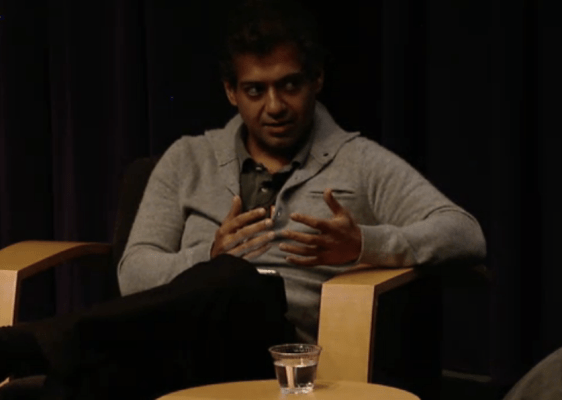In an on-stage conversation today with Dave McClure at 500 Startups’ fifth Demo Day event, AngelList co-founder Naval Ravikant gave data-driven insights on the current state of venture capital. In short, he’s forecasting a world with more startups, more bootstrapping, ‘shrinking’ funding rounds, and a boost in cross-border investing.
Redefining What Counts As Seed And Series A
AngelList is seeing that the much-buzzed-about Series A crunch is indeed real, Ravikant said. But he maintains that this is part of a natural evolution that’s not necessarily a bad thing — and that the larger ecosystem needs to adjust its expectations, not wait for things to revert back to how they used to be.
“We need to redefine what a seed round looks like, and what a Series A round looks like,” he said. “It’s going to start shrinking.” Whereas a seed round nowadays is typically expected to be around $750,000 and is often much larger, Ravikant says the “new seed round” will be just $250K to $500K. Series A rounds, which have historically been between $3 million to $5 million, should be scaled down to around $1 million, he said.
These smaller rounds mean that the classic Sand Hill Road VCs will become less active at the early stages, Ravikant said. Smaller VC funds such as Floodgate and Freestyle Capital will continue to step up and be responsible for the Series A stage, and more traditional firms will hold off involvement until the B and C rounds after startups have displayed growth metrics.
Even More Startups Ahead
While this talk of “shrinking” rounds might sound bearish, Ravikant does not think there should be fewer startups in the world. In fact, his belief is just the opposite. “The number of startups will continue to go up. I’m maniacal enough to think that eventually everyone will work for themselves, and we will all be startups of one,” he said. “But it doesn’t mean that we all should all be venture funded.” Instead, he says, more companies “should exist as bootstrapped businesses.”
AngelList is seeing this first-hand, as 100 companies are added to the site every day. While many of those companies are aspirational or just “junk,” Ravikant said about 15 to 20 of them each week are “high quality and fundable.” The issue is that there is just not enough money around for all of them to get the funds they want. That said, AngelList is seeing more cross-border transactions: A Silicon Valley startup papering funding from a London VC, say, or an Austin company securing its Series A from a Brussels-Based investor.
Back To Basics: Traction And Revenue
As for what sectors are attracting money, Ravikant says there’s been a very discernible shift that will likely continue. “In these times where people are feeling more skittish about investing, entire sectors have become unfundable,” he said. Gaming and social networking are two sectors that he said “VCs won’t fund” in general today.
Instead, he said, investors are flocking back to three basics: Products with visible traction, and startups in two sectors that tend to bring in real revenue — enterprise software, and hardware.
